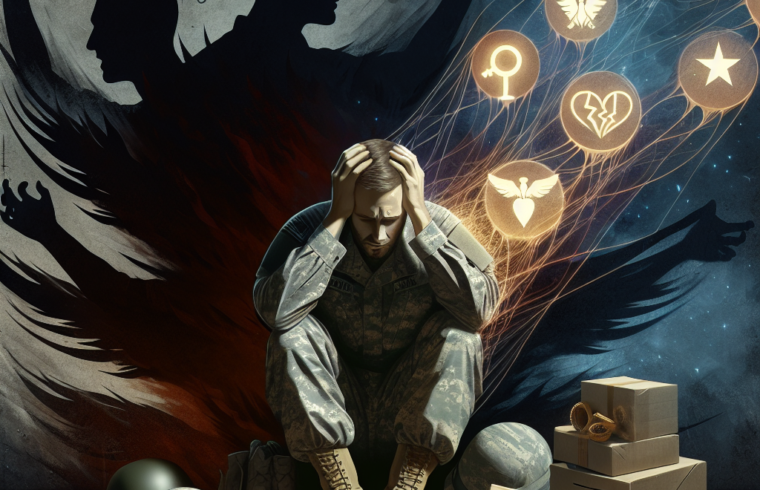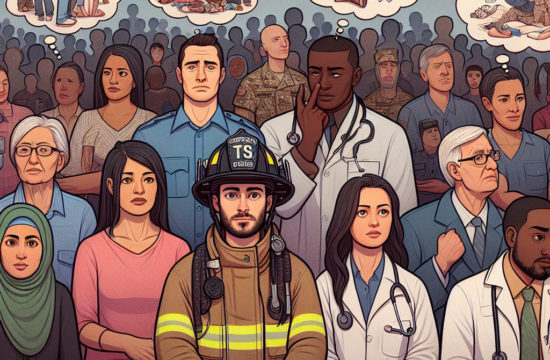==> Thank you for reading this post! Click Here If you are looking for support and Victory over PTSD.
The Most Overlooked Factors in Veteran Mental Health
Top Semantic Keyword Phrases
- Importance of social support for veterans
- The role of transition stress in veterans’ mental health
- Impact of military culture on mental health
- Access to mental health resources for veterans
Importance of Social Support for Veterans
Understanding the Need for Connection
Alright, let me tell you – one of the biggest things I’ve learned is just how essential social support is for veterans. After serving, many of us struggle to reconnect with our communities. The camaraderie we experienced during our service is something few connections can replicate. This can leave us feeling isolated and misunderstood.
Meeting people who genuinely understand the journey can make a huge difference. Joining local veteran groups or clubs can provide a support network that feels like family. Sharing stories over a cup of coffee can work wonders for mental well-being. Honestly, it’s all about feeling heard and validated.
We also need to remember that reaching out is a two-way street; we can offer support to fellow veterans who may be facing similar challenges. Building that sense of community not only benefits others but can be incredibly fulfilling for our own mental health as well.
Strong Relationships as a Buffer
The research shows that strong relationships can act as literal shields against mental health issues. Support from friends, family, and other veterans provides that buffer we all need when times get tough. Those heart-to-heart talks or even a game night can really do wonders for your mood.
I’ve found that spending time with supportive loved ones reminds you that you’re not alone in this journey. It helps to talk about our experiences and to know there are folks ready to listen without judgment. It creates a safe space where vulnerability is honored.
In fact, participating in community events or volunteering can broaden your network and introduce you to amazing people who have similar interests and backgrounds. For veterans, knowing you’re part of something bigger can be incredibly healing.
Practical Steps to Build a Support Network
Okay, so how do you actually build this support network? First, don’t be shy about reaching out. If you see a local veterans event, just show up! Many organizations are designed to be welcoming and inclusive. You might be surprised at how many others are looking for that same connection.
Next, consider leveraging online platforms. Social media groups for veterans can be a great way to connect with people who understand your experiences. Just be cautious of the content you engage with and aim for constructive and supportive spaces.
Finally, don’t underestimate the power of the buddy system. Find a veteran buddy whom you can check in with regularly. This mutual accountability can strengthen that bond and help you both navigate life after service together.
The Role of Transition Stress in Veterans’ Mental Health
Understanding the Transition Period
Transitioning from military to civilian life is no joke. This period can be filled with ambiguity and anxiety – just think about it for a second. You go from having a clear structure in daily life to facing uncertainty in the civilian world. This adjustment can be a major mental hurdle.
Many veterans experience a sense of loss during this time, not just of their service role but also the day-to-day connection with fellow service members. It’s totally normal to feel disoriented when you’re adjusting to a different lifestyle, especially when you’re used to living within a tightly-knit community.
Understanding that this stress is part of the process can make it easier to cope. Allow yourself to grieve the loss of your old life while also embracing the opportunities that await in civilian life.
Recognizing Symptoms of Transition Stress
Now, let’s get real about recognizing those signs of transition stress. Symptoms can range from irritability, anxiety, and difficulty concentrating to more serious issues like depression. Sometimes we brush these feelings off, thinking they’ll just go away. But addressing them head-on is key.
Being conscious about how you’re feeling is a step in the right direction. Journaling can be a great outlet to express those feelings, or even talking to a therapist who specializes in veteran affairs. Trust me, they know the ropes and can really help you navigate this tricky period.
Plus, don’t hesitate to share your feelings with friends or family. They might be more understanding than you think, especially if they’ve witnessed you during your transition journey.
Seeking Support During Transition
So, what can you do to seek that support? First off, many organizations help veterans with the transition process. Get in touch with local agencies or online platforms that offer resources. It can really make a difference.
Consider engaging in workshops or groups focused on transitioning. Many veterans have walked the same path, so hearing their experiences can be reassuring and informative. Plus, it’s a great way to make new friends!
Most importantly, give yourself grace. Transitioning takes time, and it’s perfectly okay to ask for help. Just know that you’re not alone in this, and there are people rooting for you every step of the way.
Impact of Military Culture on Mental Health
Understanding Military Culture
Military culture is unique, right? We have our own language, traditions, and expectations. It can create this sense of pride and camaraderie that’s hard to find elsewhere. But what’s often overlooked is how this culture can impact mental health after service.
For many of us, the intense experiences of our service can lead to emotional challenges down the line. We often have to suppress feelings or exhibit a tough demeanor. This emotional resilience is commendable, but it can lead to internal struggles when we leave that environment.
Get Started with Recovery! Visit us for more Information and Support
Reflecting on these cultural influences is crucial to understanding and addressing our mental health struggles. Accepting that this culture shaped our responses to stress can help in processing those feelings now that we’re out in the civilian world.
Navigating Cultural Expectations
One of the tough parts of military culture is the stigma around mental health. Many veterans grapple with the idea that seeking help is a sign of weakness when, in fact, it’s a tremendous strength. Recognizing that our service prepares us to tackle challenges, including mental health, is paramount.
We need to break down this stigma. Embracing vulnerability and seeking help when we need it can open doors to healing and understanding. At the end of the day, mental health shouldn’t be a taboo topic – it should be seen as a normal part of our overall wellness.
Creating conversations around mental health in veteran circles can foster empathy and connection. Sharing experiences can lead to powerful exchanges and encourage others to seek support too.
Finding a Balance Between Two Worlds
When transitioning to civilian life, it often feels like we’re trying to navigate two different worlds. Finding that balance can be tough. Embracing aspects of military culture while letting go of the parts that don’t serve us can be tricky, but it’s doable.
One way to ease this transition is to identify and hold onto the positive traits learned in the service—like resilience and teamwork—but try to adapt them to your civilian environment. It’s about creating a unique blend that feels right for you.
Participating in community service helps reinforce that sense of purpose we felt in the military while connecting us with civilians who value our experiences. Remember, it’s okay to take time to navigate this; everyone’s journey is different.
Access to Mental Health Resources for Veterans
Understanding Available Resources
When it comes to accessing mental health resources, I’ll be honest: it can feel overwhelming. There’s a ton of options out there, from traditional therapy to peer support groups. Understanding what’s available is the first step in finding what works for you.
Not only do organizations like the VA provide support, but there are also nonprofits and community programs that have your back. Take the time to research, ask around, and find out what’s available in your area. Trust me, knowing your options brings a sense of empowerment.
And don’t just stop at individual therapy! Group sessions offer a community feel, and talking to people who get it can be incredibly validating. It’s about finding the right match for you – don’t settle for something that doesn’t feel good.
Navigating Healthcare Systems
Navigating the healthcare system as a veteran can be a challenge in itself. Sometimes, just figuring out how to access benefits can take a lot of effort. But hey, if you persist, it’s worth it. Start with understanding your eligibility and the processes involved.
I highly recommend tapping into veteran advocate resources. They can provide valuable guidance and help you cut through the red tape. Getting their support not only speeds things up but also ensures you’re accessing the best resources available.
Having an advocate on your side can lessen that stress of navigating forms, appointments, and the overall system. Don’t hesitate to lean on them—they’ve got your back during this crucial time.
Empowerment through Education
Education is power. Learning about mental health and the symptoms to look out for not only calms nerves but can also help identify when to seek help. Knowing what resources are out there and how they can assist you is the key to taking control of your mental well-being.
Consider engaging in workshops that cover topics like coping strategies, stress management, and self-care techniques. These tools can serve as a toolkit you can rely on when the going gets tough.
Ultimately, the more informed we are, the more confidence we can wield when advocating for our mental health needs. So take that step – it’s your journey, and you owe it to yourself to make it a good one!
FAQ
What are some common mental health challenges veterans face?
Veterans often experience challenges such as PTSD, depression, anxiety, and difficulties with reintegration into civilian life. Recognizing these challenges is the first step towards healing.
How important is social support for veterans?
Social support plays a crucial role in a veteran’s mental health. Building connections with others can provide emotional support, reduce feelings of isolation, and promote overall well-being.
What resources are available to help veterans navigate mental health issues?
Veterans can access various resources, including the VA, community support programs, peer support groups, and therapy options tailored to their unique experiences.
How can veterans advocate for their mental health needs?
Veterans can advocate for their mental health by educating themselves about available resources, seeking support from advocates, and actively participating in discussions about mental well-being within their communities.












